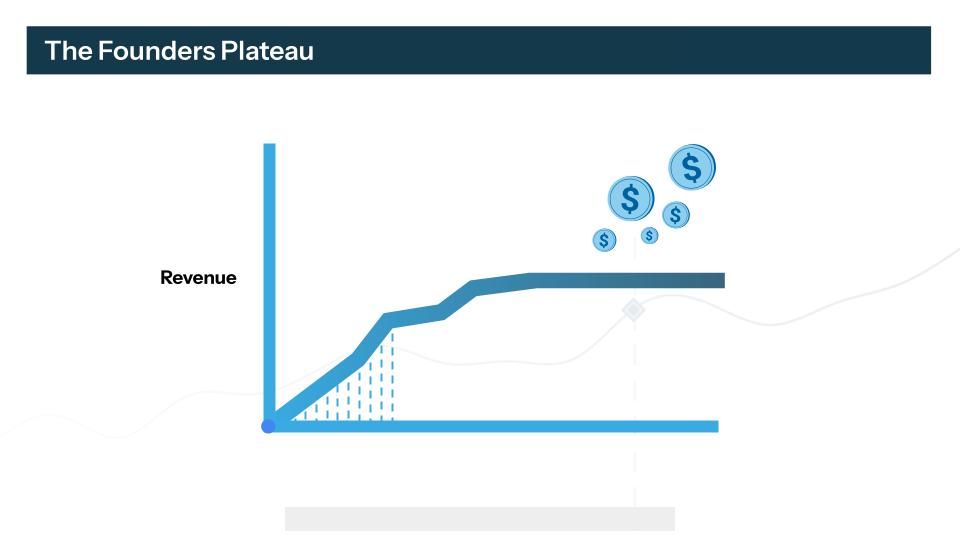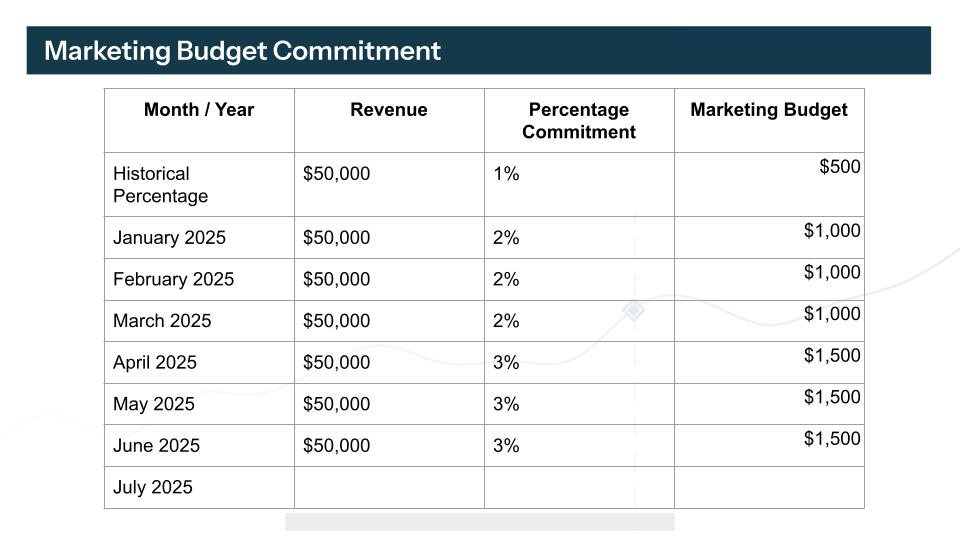When starting a business, founders often grapple with understanding marketing cost. Marketing is not just about spending money and hoping something works, but strategically planning and acknowledging what it genuinely takes to stand out in a competitive landscape. Understanding these costs is crucial for growth and sustainability.
The Founder's Plateau
Many business founders experience rapid success initially. They effectively leverage their expertise and network. However, it's common to hit a plateau, a phase where scaling becomes a challenge. This phase is often marked by slowed or even stalled business growth.
This scenario often arises because the founder is overextended. In the early days, they might have handled sales and marketing themselves, scaling the business from the ground up. But as the company continues to scale up, managing these tasks becomes increasingly complex, and the time founders can dedicate to marketing diminishes.

Exploring Marketing Solutions
Faced with stagnation, founders often look for outside marketing solutions. This usually involves exploring various options, from hiring agencies to investing in SEO or advertising services. The enthusiasm for these solutions often wanes once they confront the costs involved.
Without proper research and planning, these investments often lead to no return on investment (ROI), leaving the founder frustrated and financially burdened.
Revenue is Built, Not Bought
It's crucial to realize that successful revenue generation is rarely an overnight process.
Larger competitors typically allocate a consistent budget for marketing, learning from challenges, and iterating on strategies over time. This commitment is essential for consistent exposure and cultivation of new leads. Even as a founder, you can think like an executive and learn how to consistently allocate budget to marketing and create strategies to test and iterate over time.
Determining Your Marketing Budget
How should founders determine the right marketing budget for their business? The goal is to incrementally increase marketing spending and avoid abrupt shifts that lead to financial instability. An insightful approach is to review industry standards to determine what your goal marketing budget should be to compete in your industry.
One Deloitte study, compiled by HubSpot, provides insight into typical marketing budgets across industries. For business-to-business (B2B) professional services, for example, the industry standard is about 11% of revenue on marketing. This consistent investment helps these companies remain competitive by continually attracting new clients.
Assessing Your Current Spending
First, determine how much you’re currently spending on marketing. Start by calculating your current marketing spending as a percentage of your revenue. For instance, if your average monthly revenue is $50,000 and your marketing spend is $500, you're spending roughly 1% on marketing. Compared to industry competitors, such a low investment might be insufficient to achieve your scaling goals.
This level of expenditure reflects the importance placed on marketing within the organization. If it's disproportionate to entertainment or other non-essential areas, consider revising your budget priorities.

Strategic Spending of Your Marketing Budget
Once you've determined a realistic marketing budget, the next step is to plan how to effectively utilize those funds. As you gradually increase the marketing budget, you can begin to determine what marketing strategies are working and which are not working, and allocate spending accordingly.
Core to this strategy is ensuring a balanced approach. Diversify your marketing efforts to cover a mix of channels, including digital marketing, social media, content, and traditional marketing methods. Don't focus heavily on one channel while neglecting others, as this could limit your reach and potential growth. Be prepared to evaluate and adjust your strategies in response to what is working well and what is not.
Monitoring and Adjusting Marketing Spend
Effective marketing doesn't happen by accident. It requires careful tracking of performance metrics and a willingness to pivot or recalibrate as necessary. Utilize analytics tools to measure the performance of different campaigns and channels. Pay attention to metrics such as cost per acquisition, conversion rates, and overall customer engagement.
Implement regular check-ins to evaluate these metrics and make informed adjustments. This proactive approach ensures you are only investing in channels and strategies that yield the best results.
Resolving Challenges
No marketing plan is immune to challenges. Whether it’s a change in market trends, new competition, or evolving customer preferences, being able to pivot is essential. Utilize feedback from your analytics and listen to customer interactions to understand these shifts.
Be ready to adapt your marketing strategies and budget allocations accordingly. Doing so not only mitigates potential downturns but also capitalizes on new opportunities as they arise.
Conclusion
In summary, understanding the true marketing cost involves recognizing it as a strategic investment rather than an expense. Consider it as a central element of your business’s growth engine. From consistent budgeting to a diversified strategy and maintaining flexibility, each component plays a crucial role in optimizing marketing performance.
As a founder, having a robust plan will allow you to manage, adapt, and maximize your marketing ROI effectively.
Follow FounderScale on YouTube for more insights on scaling revenue through strategic marketing!



